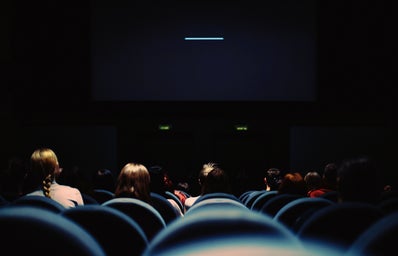“Blind casting,” or the idea that an actor’s race, gender, sexuality, age or disability has no say within the casting room is a harmful concept in the world of theater and film.
While this may sound like a good idea in theory, it is a hard choice to make in the casting room, as implicit biases exist. Alternative casting ideas are not always taken into consideration because of biases in the casting processes.
There are plays, movies and television shows where the race, gender, sexuality, age or ability of a character may be a crucial plot point to the piece. In these circumstances, it is very important to cast with this in mind. You must take into account the story and themes of the piece, gender roles, if there are racial injustices in the story or sexualities that need to be represented.
Instead of blind casting, it is important to cast consciously and cast actors with intentional decisions. Having a diverse cast is important, yes, and this means that directors and casting directors must look into what is able to be cast differently, and what that entails for the story. In honor of diversity, being conscious while casting is crucial in order to make strong choices while casting. Sometimes, we may even realize that the gender of the character may not make a difference in the story.
We should instead choose the best actor for a role with conscious casting in mind. Representation is crucial onstage, and while implicit biases may tend to come into play with traditionally cis-gendered, white casting, we must force casting directors and directors to confront their biases. Conscious casting will open more doors for BIPOC, LGBTQ+, women, neurodivergent and people with disabilities.
Openly gay actor Neil Patrick Harris was interviewed by the Today Show about straight actors playing gay characters.
“At this point in my life/career, it’s what feels interesting, inspiring, right,” Harris wrote. “That said, do I want to see more gay parts played by gay actors? Yes. It makes a difference performance-wise (IMO), but also because ‘straight’ actors playing ‘gay’ centers straightness. Doesn’t matter if they’re ‘acting.’ I still know what I’m looking at.”
It is controversial (to many) to have an actor who does not identify with the defining plot points of the story, whether that be in race, gender, sexuality, age or disability. When it comes to showing where this is crucial, we must take this into consideration.
The work “And The Oscar Goes to; Well, It Can’t Be You, Can It: A Look at Race-Based Casting and how it Legalizes Racism, Despite Title VII Laws,” speaks volumes about how minority actors are not always put in front for leading roles because “diversity works at its best when it comes to less profitable acting roles.” Hiring based on the stereotypical representation of minority groups then leads to typecasting that is solely based on these stereotypes.
Civil advocacy groups such as the National Association for the Advancement of Colored People (NAACP), the National Latino Media Council (NLMC), and the Media Action Network for Asian Americans (MANAA) work and strive for change within television and representation.
Race-based casting is also seen in a lot of portrayals of families. In these circumstances, multiethnic casting, or the idea that you are using colorblindness to cast familial units, is used. This also helps within representation and allows people from all backgrounds to identify with the story at hand.
It is also important for young filmmakers and writers to understand that if they do not have criteria for how an actor looks that it is not necessary to narrow these characteristics down. “While colorblind or multiethnic casting would ideally open acting opportunities so that they are more inclusive, it would be a mistake to forget the film industry is highly esoteric. Individuals rarely know the reasons why they did not receive the role for which they auditioned.”
We cannot truly cast “blindly,” as there are stories that vastly deal with a larger systemic issue and the prominence of race, gender, sexuality or disability portrayal should be done with intentional, or conscious casting. We should not feel obligated to cast a specific way because of implicit biases that come into a casting room. Instead, making conscious, detailed choices within the casting room is necessary to move forward and to create inclusivity on screen, television or plays.


